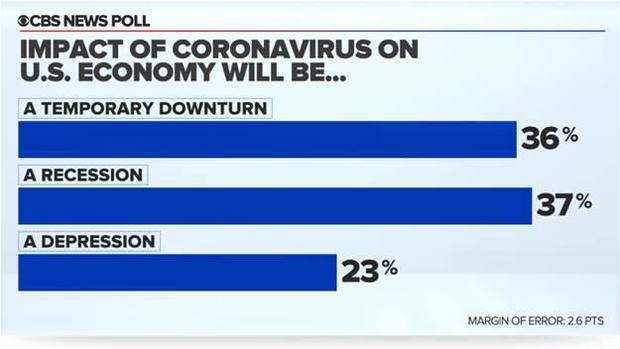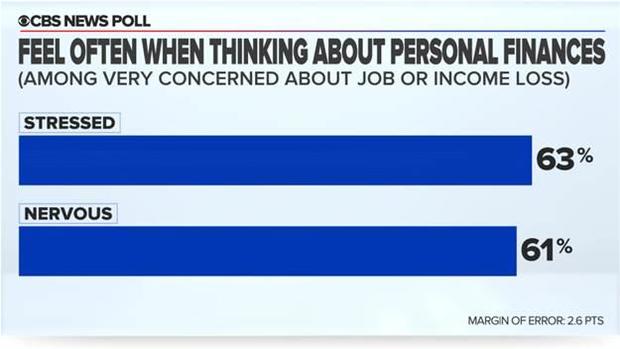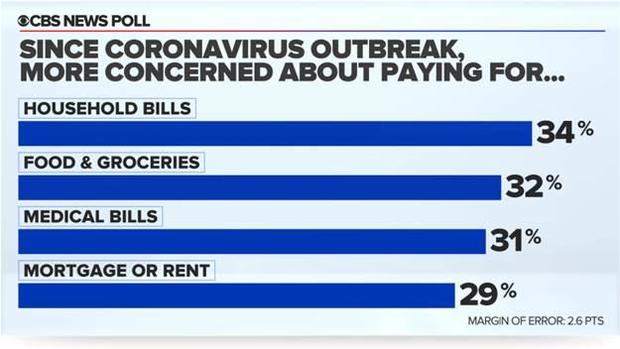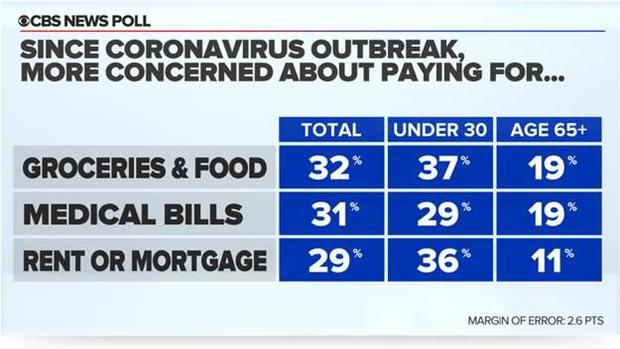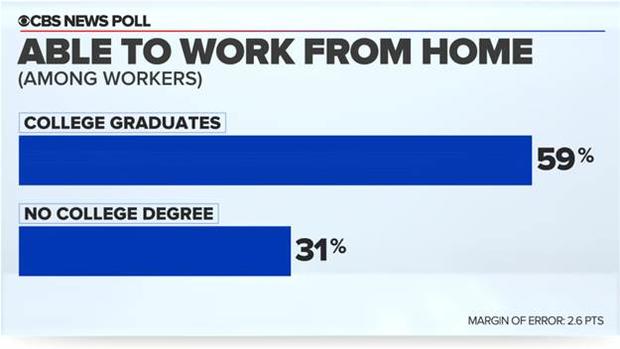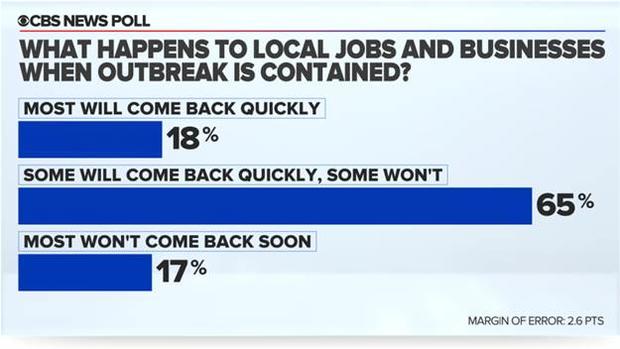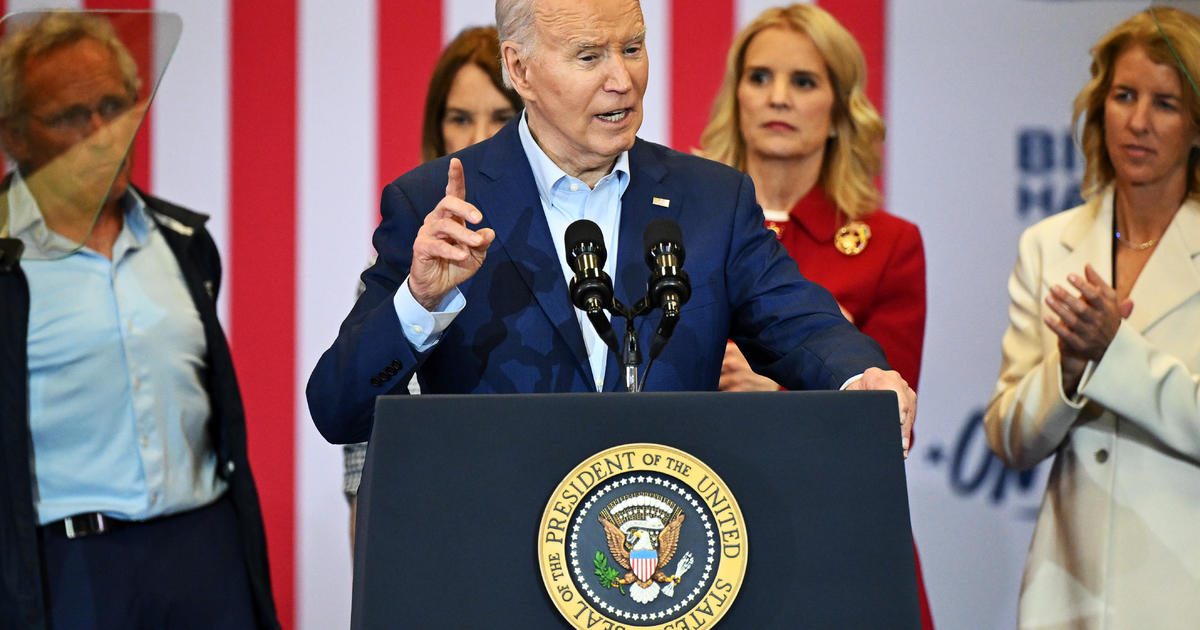Americans fear coronavirus outbreak will leave U.S. in recession - CBS News poll
Americans have an increasingly negative view of the economy's financial health, and their prognosis for it is not upbeat: only a third expect this downturn to be temporary. And as often happens, many are interpreting the nation's economic fate through their own experience. Those most concerned about losing work, including those who already have, are the most likely to say the U.S. is headed for a recession, or even depression.
But Americans also know the nation's economic health is tied to how it manages the coronavirus. If people think the coronavirus outbreak will get better next month, they're most likely to think the economic downturn will be temporary. For those who fear the outbreak will get worse next month, the economy overwhelmingly looks to them like it's at least headed for recession.
Concern brings stress: 63% of those very worried about job or income loss report feeling stressed often or all the time about their financial situation. A similar number of them say they're often nervous about it, too.
About one-third of Americans report feeling more concern over their ability to pay bills now.
Those who are very concerned about losing a job or income — or who already have — are especially worried about it. For most of them, along with concern about lost income, comes concern about their ability to pay their rent or mortgage, their household bills, and food.
The financial toll right now is hitting younger Americans harder: they're reporting more concern about paying for rent, mortgage, food and groceries than are those over age 65.
Meanwhile seniors, while just as worried about health risks, are the least likely age group to express concern about paying for things from day to day, and less likely to say they're worried about medical bills, too.
There are economic differences between those who can and are working from home and those who can't. Employed people with college degrees say they can, and are, working from home at about twice the rate that non-college people do. Those working from home report higher incomes than those who aren't. But at the same time, there aren't big differences in the amount of stress each group is feeling over finances right now - both are feeling some.
It is never easy for individuals to make economic predictions, but most see a mixed outcome for their local businesses once the outbreak is contained; two-thirds think some will return and some won't.
This CBS News survey was conducted by YouGov using a nationally representative sample of 2,025 U.S. residents interviewed between April 7-9, 2020. This sample was weighted according to gender, age, race and education based on the American Community Survey, conducted by the U.S. Bureau of the Census, as well as 2016 presidential vote and registration status. The margin of error is +/- 2.6 points.
